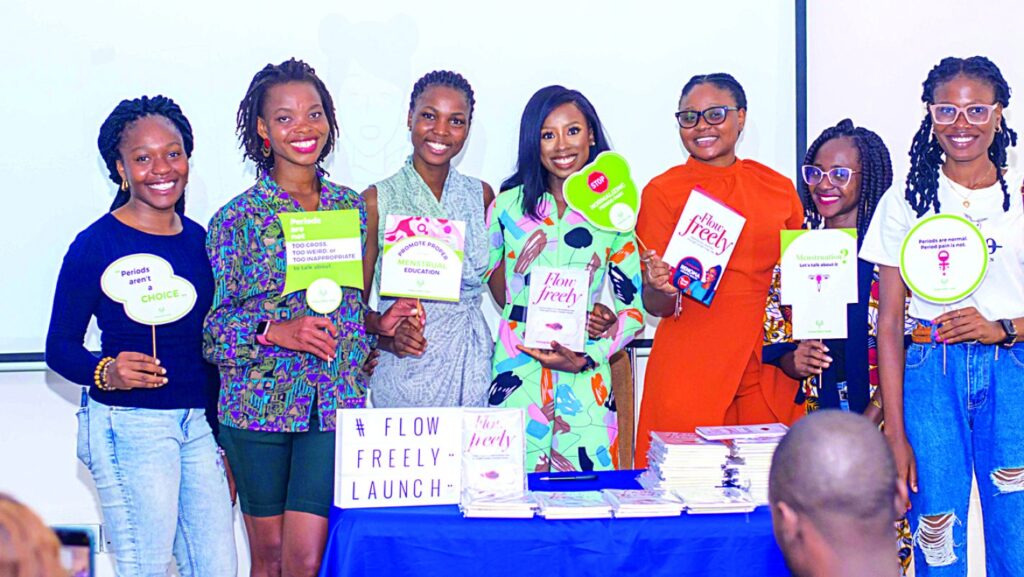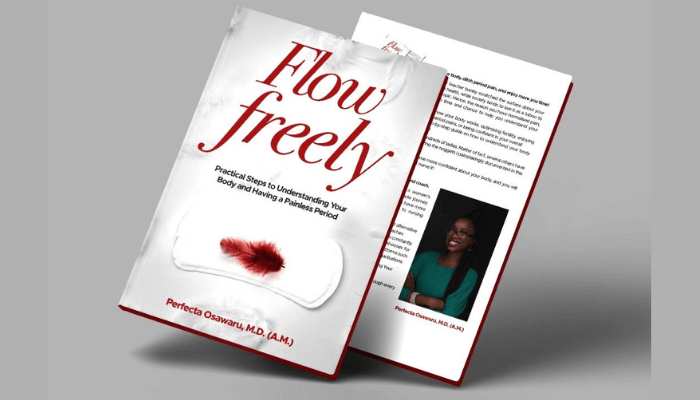
All over the world, there are different research outcomes and statistics on period poverty (which
refers to a lack of access to menstrual products, sanitation facilities and adequate education),
and this widespread issue affects an estimated 500 million females worldwide.
Those experiencing period poverty may have mental health challenges and physical health
risks. Also, because they live in communities where menstruation is seen as a taboo, they
would have inadequate menstrual knowledge, resulting in a wrong approach to the
phenomenon.
Before I dive into the number of problems this topic on menstruation has posed, let me say this:
I know we were all psyched about reproductive health when we were taught in school. However,
while our biology teachers did their best in nearly scratching the surface of the topic of
reproduction, you would agree with me that we were not taught in detail about menstruation and
all that it entails.
Now, do you know that out of over 7.9 billion people on earth, roughly 26% of that global
population includes women of reproductive age, and menstruation is still being stigmatized.
Just like the statistics cited—which is one of the reasons myriads of females are not well
educated on the subject matter—some other beliefs about menstrual blood being unclean and
how it is regarded as a forbidden matter in many countries of the world contribute greatly to why
the topic of menstruation is often swept under the carpet.
If you are wondering why, you should give time and attention to the understanding of what
menstruation is about, I will tell you in a moment. Before then, ponder on this scenario for a
couple of seconds: If you knew you would have to compulsorily spend about 10 years of your
life in an environment that might determine how well your life turns out at the end of the day, you
would most likely agree with me that the wise thing to do would be for you to know about the
culture of that place, the policies that make things go smoothly, how their healthcare system
works, the way their legal framework is structured and everything else that will affect your total
wellbeing.
By now, you must have started thinking about other things you must also pay critical attention
to in such a situation because 10 years is a great deal of time, right? Well, that is about the
number of years a woman spends on her periods. Yes, you read that right—statistics show that
the average woman would have about 450 periods in her lifetime.
As if 10 years of one’s life is not enough, imagine spending a huge percentage of that time
nursing pain and not being productive. Allow me to say, “Wahala for who no sabi dis period thing
o!” Which literally translates to “Trouble for one who doesn’t understand this period thing.” Now
that you have an idea of the importance of understanding menstruation, let me tell you a little bit
about my period struggles.

My Menstruation Story
Speaking from experience, compared to anyone else I’ve come across, I had the worst
menstrual cramp ever. This is not to play down your kind of pain. However, it was one of those
pains I could have never gotten used to. I doubt anyone would like to live with such a monthly
ordeal for several years of their lives. For me, menstruation was associated with excruciating
pain and agony. Then, the vomiting, diarrhea (frequent and watery bowel movements) and
uncomfortable increase in temperature were also a constant.
You know that aren’t-you-exaggerating-this-pain kind of look people give, whereby they just
want to simply ask, “Is it that serious?” I have been there, and you might possibly know
someone who experiences such as well.
I sometimes got injected with whatever it was that I was injected with in order to ease my
menstrual pain. This kept me on a steady lookout for a way to ease my pain, and I got several
kinds of recommendations and suggestions ranging from ridiculous to shocking.
One of such “solutions” was the consumption of alcohol around the time of my period. I never
went that route but I know quite a number of ladies have turned to alcohol because it was the
promised savior that was prescribed to them.
Nevertheless, it might interest you to know that alcohol causes dehydration, hence it ends up
worsening the situation by making the pain more severe since the blood can’t flow that freely
anymore. Some might claim that this works, but that could be a result of the Placebo Effect.
If you are one of those women who merely experiences mild discomfort during their periods, or
maybe you’re a curious man reading this, at this point you might wonder, “What is the essence
of this story?” This story is about dysmenorrhea, well-known as menstrual pain. It is a story that
will help you understand how gruesome the issue of that time of the month might be for some of
your colleagues or friends, and how you might be able to empathize with them.
It is a story that is meant to plant the seed of menstrual health advocacy in you, with the hope
that you would bridge the knowledge gap in your own little way.
Dysmenorrhea has affected, and it keeps affecting, many girls and women all over the world
despite the fact that it has solutions and preventive measures. Yet too many women—educated
and uneducated alike—have no idea as to how to end the misery that pays them monthly visits.
Just like so many avoidable health issues affecting humans generally, lack of proper education
on such matters and misapplied information have led to the endurance of needless pains, loss
of productive time and questioning of one’s self-worth amongst other negative effects.
And if you are a man reading this, you probably have a sister, girlfriend, fiancée or wife who has
complained about menstrual pain. You might have even witnessed times when one of these
people were literally writhing in pain. It can be frustrating to see someone you deeply care about
go through agonizing moments when the best you can do is to say “sorry” endlessly.
That is if you can stand the ordeal in the first place. You probably keep pondering, “What can I
do? How can I help to get her off this excruciating pain, and not just watch her wallow in
them? Or can’t we even end the whole menstruation process altogether?” The answers you
seek are right ahead; the simplicity of some of them will amaze you.
Finding Help
Apart from my menstruation struggles, I always had to deal with some sort of pain at different
stages of my life. Growing up, I fell ill repeatedly, and I got used to the medications. It seemed as
though it would never end. Coupled with the monthly ordeal that was now in the equation, I got
curious about the possibility of living sickness-free for several years in a row, without having to
worry about the next form of pain I would encounter.
This got me started on the search for how to get better results and obtain optimal health
because I was tired of the temporal reliefs, and this birthed my journey into learning about how
to unlock health right within my body system instead of constantly relying on medications to give
me short-lived ease.
It was from my constant search that I discovered how what I eat, what I do and other overlooked
factors could affect my overall well-being. As I began to put my findings to use, I became more
wholesome. My discoveries made it look like I had discovered the missing link.
Most people live like I did, and they are constantly exhausted with issues surrounding their
health and vitality. Some have even subconsciously resigned to fate. They have accepted to
manage pain their whole life. But this is definitely not the way anyone would want to live their
life.
As it is, life itself comes with its own troubles, dealing with constant health challenges should not
be gift-wrapped as a part of that experience. That is why I have written this book with the intent
of letting you know that it is possible to live without many of the health challenges women must
normalized and to show you how to unlock that possibility yourself.
The journey to a painless life begins with a deliberate act toward health. It was that
deliberateness that helped me in my journey such that, beyond my menstrual health, I achieved
better results in other areas of my health that I have had issues with. Seeing how pleasant my
life became in turn; I was eager to help replicate my triumphs in other people’s lives but without
going to the trial-and-error route.
My quest made me study more and got professionally certified in core areas of holistic healing.
We all have heard time and time again that “there’s purpose in your pain. “That saying is so true
of my mission: to help you journey through a pain-free life because I know what both sides of
the coin feels like, and I now know how to permanently stay on the vitality side.
Now, what do I mean by “a deliberate act toward health”? When people hear “healthy,” they
come with the mindset of “Oh! You want me to stop eating this or doing that, and I can’t. The
taste is so satisfying; I just can’t do without it.” Alvin Toffler once said, “…we unlearn to relearn.”
Firstly, I would address the mindset here. There is a need to come off the idea that being
healthy means depriving yourself of the nicest things.
Because sometimes some of these “appealing foods” are detrimental to your health, and people
always go for them because they are readily available
Written By: Perfecta Osawaru


